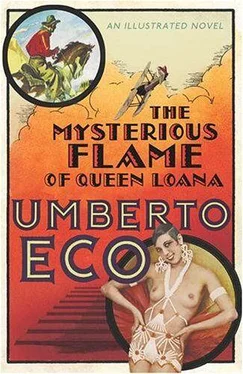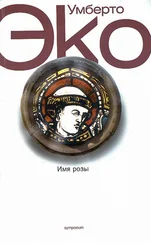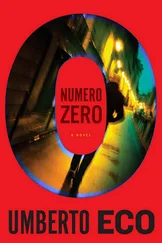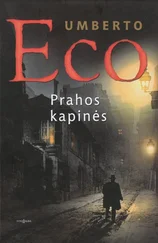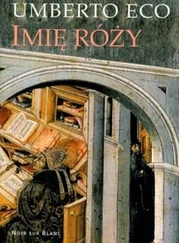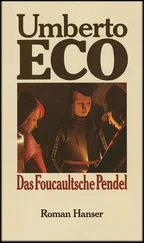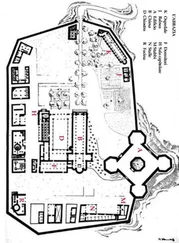Umberto Eco - The Mysterious Flame Of Queen Loana
Здесь есть возможность читать онлайн «Umberto Eco - The Mysterious Flame Of Queen Loana» весь текст электронной книги совершенно бесплатно (целиком полную версию без сокращений). В некоторых случаях можно слушать аудио, скачать через торрент в формате fb2 и присутствует краткое содержание. Жанр: Исторический детектив, на французском языке. Описание произведения, (предисловие) а так же отзывы посетителей доступны на портале библиотеки ЛибКат.
- Название:The Mysterious Flame Of Queen Loana
- Автор:
- Жанр:
- Год:неизвестен
- ISBN:нет данных
- Рейтинг книги:3 / 5. Голосов: 1
-
Избранное:Добавить в избранное
- Отзывы:
-
Ваша оценка:
- 60
- 1
- 2
- 3
- 4
- 5
The Mysterious Flame Of Queen Loana: краткое содержание, описание и аннотация
Предлагаем к чтению аннотацию, описание, краткое содержание или предисловие (зависит от того, что написал сам автор книги «The Mysterious Flame Of Queen Loana»). Если вы не нашли необходимую информацию о книге — напишите в комментариях, мы постараемся отыскать её.
The Mysterious Flame Of Queen Loana — читать онлайн бесплатно полную книгу (весь текст) целиком
Ниже представлен текст книги, разбитый по страницам. Система сохранения места последней прочитанной страницы, позволяет с удобством читать онлайн бесплатно книгу «The Mysterious Flame Of Queen Loana», без необходимости каждый раз заново искать на чём Вы остановились. Поставьте закладку, и сможете в любой момент перейти на страницу, на которой закончили чтение.
Интервал:
Закладка:
"Paris is still too much for you, with travel and all. Let me give it some thought."
"Okay, not Paris. T o M o s c o w , to Mo scow… "
"To Moscow?"
"That’s Chekhov. You know quotations are my only fog lights."
4. Alone through City Streets I Go
____________________
They showed me a lot of family photos, which unsurprisingly told me nothing. But of course, the ones they had were all from the time since I have known Paola. My childhood photos, if any, must be somewhere in Solara.
I spoke by phone with my sister in Sydney. When she learned I had not been well she wanted to come at once, but she had just undergone a rather delicate operation, and her doctors had prohibited her from making such a taxing journey.
Ada tried to remind me of something from the past, then gave up and started crying. I asked her to bring me a duck-billed platypus for the living room, next time she came-who knows why? Given these notions of mine, I might as well have asked her to bring me a kangaroo, but evidently I know they cannot be housebroken.
I spend only a few hours a day in the studio. Sibilla is getting the catalogue ready, and of course she knows her way around bibliographies. I give them a quick glance, say they look marvelous, then tell her I have a doctor’s appointment. She watches me with apprehension as I leave. I feel sick, is that not normal? Or does she think I am avoiding her? What am I supposed to tell her? "I don’t want to use you as a pretext for rebuilding fictitious memories, my poor dear love"?
I asked Paola what my political leanings were. "I don’t want to find out I’m a Nazi or something."
"You’re what they call a good liberal," Paola said, "but more from instinct than ideology. I always used to say politics bored you-and for the sake of argument you called me La Pasionaria. It was as if you sought refuge in your antique books out of fear, or contempt for the world. No, that’s not fair, it wasn’t contempt, because you were fervent about the great moral issues. You signed pacifist and nonviolent petitions, you were outraged by racism. You even joined an antivivisection league."
"Animal vivisection, I imagine."
"Of course. Human vivisection is called war."
"And was I… always like that, even before meeting you?"
"You skated over your childhood and adolescence. And anyway I’ve never really been able to understand you about these things. You’ve always been a mix of compassion and cynicism. If there was a death sentence somewhere, you’d sign the petition, you’d send money to a drug rehab community. But if someone told you, say, that ten thousand babies had died in a tribal war in central Africa, you’d shrug, as if to say that the world was badly made and there’s nothing to be done. You were always a jovial man, you liked good-looking women, good wine, and good music, but I always got the impression that all that was a shield, a way of hiding yourself. When you dropped it, you used to say that history is a blood-drenched enigma and the world an error."
" Nothing can shake my belief that this world is the fruit of a dark god whose shadow I extend. "
"Who said that?"
"I don’t remember."
"It must be something that involved you. But you always bent over backward if anyone needed anything-when they had the flood in Florence, you went as a volunteer to help pull books out of the mud at the Biblioteca Nazionale. That must be it, you were compassionate about the little things and cynical about the big things."
"That sounds fair. One does what one can. The rest is God’s fault, as Gragnola used to say."
"Who is Gragnola?"
"1 don’t remember that either. I must have known once."
What did I know once?
One morning I woke up, went to make a coffee (decaf), and started humming Roma non far la stupida stasera. Why had that song come to mind? It’s a good sign, Paola said, a beginning. Apparently every morning I would sing a song as I made coffee. No reason that one song came to mind as opposed to any other. None of Paola’s inquiries (what did you dream last night? what did we talk about yesterday evening? what did you read before falling asleep?) produced a reliable explanation. Who can say-maybe the way I put my socks on, or the color of my shirt, or a can I glimpsed out of the corner of an eye had triggered a sound memory.
"Except," Paola noted, "you only ever sang songs from the fifties or later. At most, you’d go back to the early San Remo festivals-songs like Fly , Dove or Papaveri e papere. You never went farther back than that, nothing from the forties or thirties or twenties." Paola mentioned Sola me ne vò per la città , the great postwar song, which had been on the radio so often that even she, though only a little girl at the time, still knew it. It certainly sounded familiar, but I did not react with interest; it was as if someone had sung Casta Diva , and indeed it seems I was never a great fan of opera. Not the way I am of Eleanor Rigby , say, or Que será , será , or Sono una donna non sono una santa. As for the older songs, Paola attributed my lack of interest to what she called a repression of childhood.
She had also noticed over the years that although I was something of a connoisseur of jazz and classical music and liked to go to concerts and listen to records, I never had any desire to turn on the radio. At best, I would listen to it in the background if someone else had turned it on. Evidently the radio was like the country house: it belonged to the past.
But the next morning, as I was waking up and making coffee, I found myself singing Sola me ne vò per la città:
All alone through city streets I go ,
Walking through a crowd that doesn’t know ,
That doesn’t see my pain.
I search for you , I dream of you , but all in vain…
All in vain I struggle to forget ,
First love is impossible to forget ,
Inside my heart a name is written , a single name.
I knew you well , and now I know that you are love ,
The truest love , the greatest love…
The melody came of its own accord. And my eyes teared up.
"Why that song?" Paola asked.
"Who knows? Maybe because it’s about searching for someone. No idea who."
"You’ve crossed the barrier into the forties," she reflected, curious.
"It’s not that," I said. "It’s that I felt something inside. Like a tremor. No, not like a tremor. As if… You know Flatland , you read it too. Well, those triangles and those squares live in two dimensions, they don’t know what thickness is. Now imagine that one of us, who lives in three dimensions, were to touch them from above. They would feel something they’d never felt before, and they wouldn’t be able to say what it was. As if someone were to come here from the fourth dimension and touch us from the inside-say on the pylorus-gently. What does it feel like when someone tickles your Pylorus? I would say… a mysterious flame."
"What does that mean, a mysterious flame?"
"I don’t know-that’s what came to mind."
"Was it the same thing you felt when you looked at the picture of
your parents?"
"Almost. Not really. Actually, why not? Almost the same." "Now that’s an interesting signal, Yambo, let’s take note of that." She is still hoping to redeem me. And me with my mysterious flame
sparked, perhaps, by thoughts of Sibilla.
Sunday. "Go take a stroll," Paola told me, "it will do you good. Stick to the streets you know. In Largo Cairoli, there’s a flower stall that’s usually open even on Sundays. Have him make you a nice spring bunch, or just some roses-this house feels like a morgue."
Читать дальшеИнтервал:
Закладка:
Похожие книги на «The Mysterious Flame Of Queen Loana»
Представляем Вашему вниманию похожие книги на «The Mysterious Flame Of Queen Loana» списком для выбора. Мы отобрали схожую по названию и смыслу литературу в надежде предоставить читателям больше вариантов отыскать новые, интересные, ещё непрочитанные произведения.
Обсуждение, отзывы о книге «The Mysterious Flame Of Queen Loana» и просто собственные мнения читателей. Оставьте ваши комментарии, напишите, что Вы думаете о произведении, его смысле или главных героях. Укажите что конкретно понравилось, а что нет, и почему Вы так считаете.
